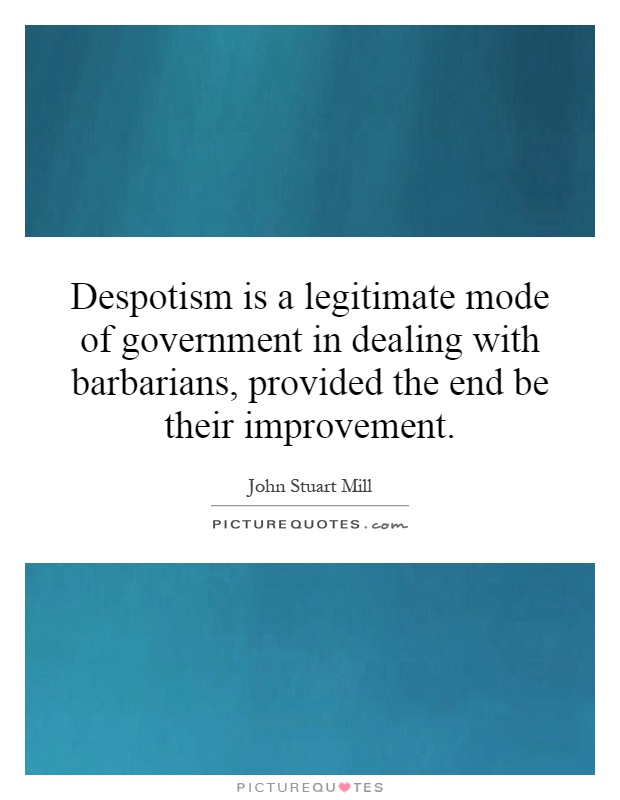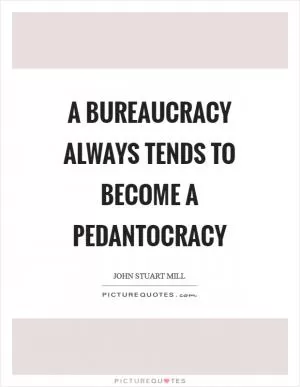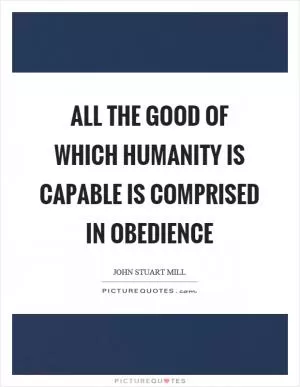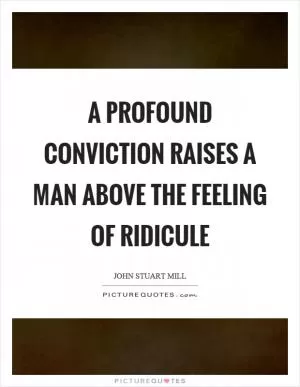Despotism is a legitimate mode of government in dealing with barbarians, provided the end be their improvement

Despotism is a legitimate mode of government in dealing with barbarians, provided the end be their improvement
John Stuart Mill, a prominent 19th-century philosopher and political economist, is known for his advocacy of individual liberty and limited government intervention. However, his views on despotism in dealing with barbarians are complex and nuanced. In his essay "On Liberty," Mill argues that despotism can be a legitimate mode of government when dealing with barbarians, as long as the ultimate goal is the improvement of the barbarians themselves.Mill's justification for despotism in this context stems from his belief in the principle of utilitarianism, which holds that the greatest happiness for the greatest number should be the ultimate aim of all actions. In the case of barbarians, who may lack the education, social structure, or moral values necessary for self-governance, a strong and centralized government may be necessary to impose order and promote progress.
Mill acknowledges that despotism can be oppressive and tyrannical, but he argues that in certain circumstances, such as dealing with barbarians, it may be a necessary evil. He believes that the end goal of despotism in these cases should always be the improvement and enlightenment of the barbarians, rather than simply the exercise of power for its own sake.
Mill's views on despotism in dealing with barbarians can be seen as a pragmatic approach to governance in situations where traditional forms of government may not be effective. By advocating for despotism in these cases, Mill is not endorsing tyranny or oppression, but rather recognizing that sometimes a strong and centralized authority may be necessary to bring about social progress and development.
Overall, Mill's views on despotism in dealing with barbarians highlight the complexity of his political philosophy. While he is a staunch advocate of individual liberty and limited government intervention, he also recognizes that in certain circumstances, despotism may be a legitimate mode of government if the ultimate goal is the improvement and enlightenment of the people being governed.












 Friendship Quotes
Friendship Quotes Love Quotes
Love Quotes Life Quotes
Life Quotes Funny Quotes
Funny Quotes Motivational Quotes
Motivational Quotes Inspirational Quotes
Inspirational Quotes